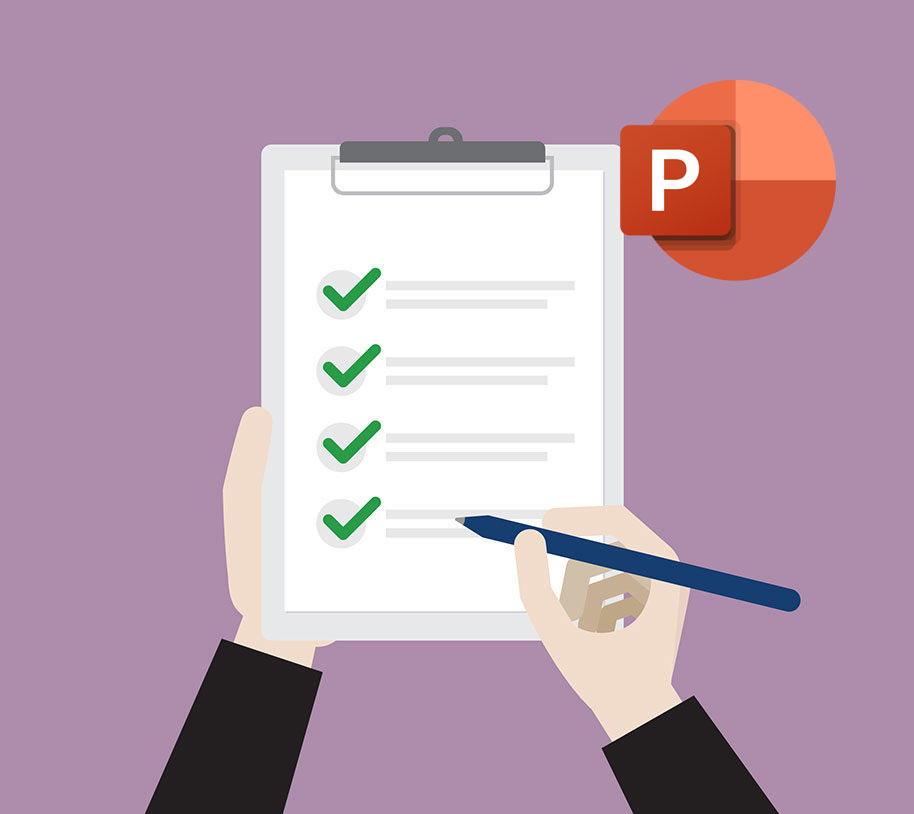Themes and Layouts
- Use the built-in themes and slide layouts.
- Use accessible slide masters/templates.
- Avoid adding text boxes or objects on top of the content boxes already provided in layout templates.
Slide Title
- Use a unique title for each slide. If you do not wish to display the title, make it match the background color or hide it from view.
- Use the Outline View to ensure slide titles are meaningful and logically sequenced.
Text
- Use 18-point font size or above.
- Use a sans serif font.
Spacing
- Use clear, consistent layouts and organizations schemes for presenting content.
- Do not overcrowd slides with too much content. Use the 7 x 6 rule (seven lines per slide, six words per line in).
- Leave sufficient white space in each slide.
- Use the speaker notes feature to add more in-depth detail and print slides for learners.
Colour and Contrast
- Do not use a colour to convey a meaning.
- Use sufficient colour contrast between text and background (contrast ratio of at least 4.5:1 for normal text and 3:1 for large text).
Listed Items
- Use Bullets, Numbering, or Multilevel List options to create lists properly.
Images
- Add alternative text to images.
- Mark images that contain no information or meaning as “decorative”, so they aren’t picked up by an assistive device.
Graphs, Charts and SmartArt
- Add alternative text to graphs or charts or SmartArt.
- Add caption or in-text descriptions to graphs or charts or SmartArt.
Embedded Audio and Video
- Add text transcripts and/or captions to embedded audio and video.
Tables
- Insert table properly using the Insert tab.
- Apply table style options using the Table Design tab: check the Header Row check box.
- Use a simple table structure (do not merge cells).
- Add alternative text to table.
- Do not use images in tables.
- Do not “draw or erase” cells.
Hyperlinks
- Define hyperlinks (i.e., ensure that the hyperlink has context and describes where it leads).
- Link to accessible webpages/documents/videos.
Reading Order
- Set reading order of slide content using the Reading Order pane.
Animations and Transitions
- Avoid using automatic animations and transitions.
- Ensure animations are brief and do not distract from important content.
Presentation Properties
- Add a descriptive title to the presentation through the Info section of the File tab.
- Use a meaningful file name for the presentation.
Accessibility Check
- Review presentation using the built-in MS Office Accessibility Checker.
- Make appropriate changes to the presentation as indicated/required.

